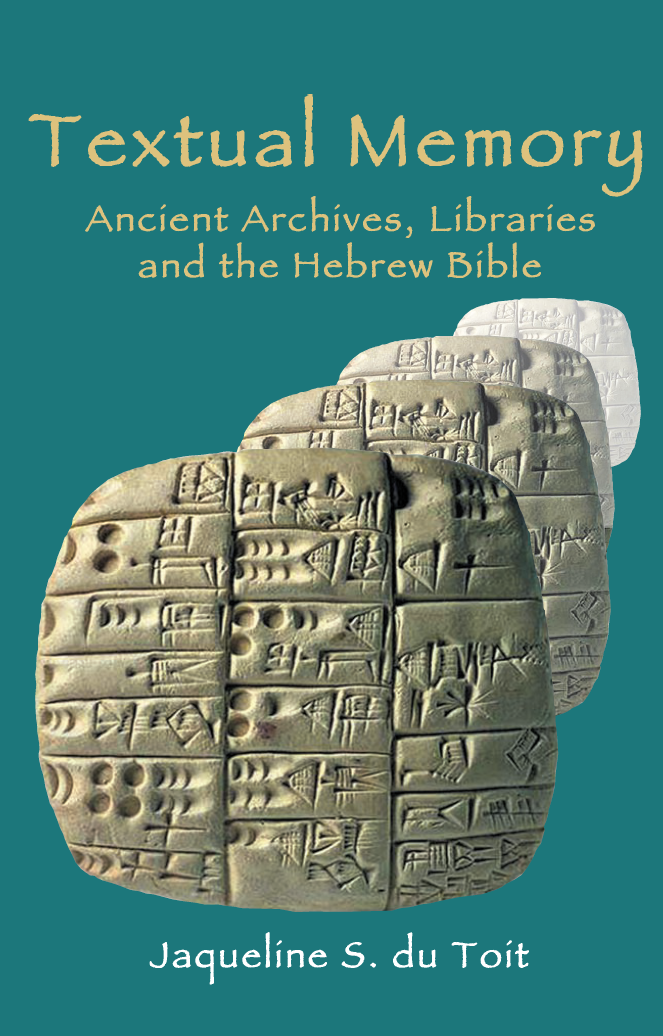Textual Memory: Ancient Archives, Libraries and the Hebrew Bible
£65.00
Ultimately, this book is a historiographical synthesis of current scholarship on ancient Near Eastern archives and libraries from different disciplinary perspectives. Its purpose is to better understand how we should conceive of the Bible as religious tradition and literary heritage.
In modern scholarship the Hebrew Bible represents a collection of books, perhaps even a library of books. Some think that it is a selection of ancient oral traditions that were eventually written down, edited and preserved. Others suggest that the biblical corpus resulted from a merging of regional libraries in ancient Palestine or was the outcome of the Hasmoneans’ need to legitimize their rule by claiming ownership of a library of books originating in the Jerusalem temple. No matter how tantalizing these hypotheses are, the implications of a concrete understanding of the origins of the Bible as library or archive are not often fully appreciated by scholars.
Textual Memory explores how various disciplines, including Assyriology, biblical studies, archival science and library history, have made sense of the thousands of collections of clay tablets and ancient written material discovered over the past two hundred years in the Middle East. And it raises the question whether the great libraries of Ashurbanipal and Alexandria, among others, are able to suggest models of how the Hebrew Bible came into being. Can the temple libraries in Mesopotamia or Egypt offer us any clues about who decided what should be preserved and why? What have ancient archival practices of careful selection, conservation, classification and dissemination of information to contribute to our understanding of the creation of the Hebrew Bible?
Ultimately, this book is a historiographical synthesis of current scholarship on ancient Near Eastern archives and libraries from different disciplinary perspectives. Its purpose is to better understand how we should conceive of the Bible as religious tradition and literary heritage.
Additional information
| table of contents | Chapter 1 INTRODUCTION: THE ARCHIVE OF PARADISE 1 Chapter 2 MODERN SCHOLARSHIP AND THE ANCIENT PHENOMENON 8 1. Introduction 8 2. The Heroic Period 15 3. The Twentieth-Century Definition of Ancient Collections 22 4. Conclusion 37 Chapter 3 AN IMPERCEPTIBLE DIALOGUE: CANON, TEMPLE AND LIBRARY 39 1. Introduction 39 2. Tracing the Development of a Concept: The Temple Library 40 3. Canonization and the Temple Library 56 4. Conclusion 76 Chapter 4 USE AND THE ASSIGNMENT OF MEANING: ARCHIVES AND ADJUNCT TEXTUAL DEPOSITS 79 1. Archives 79 2. Adjunct Textual Deposits 102 3. Conclusion 123 Chapter 5 THE ENTERPRISE OF EMPIRE: ENCYCLOPEDIC KNOWLEDGE, THE UNIVERSAL LIBRARY AND TOTAL ARCHIVES 125 1. Introduction 125 2. Encyclopedic Accumulation: ‘A Variety of Configurations’ 128 3. Derrida’s Fever and Desire 138 4. Clio’s Birdcage: Origins, the Text and the Revisionists 142 5. Conclusion 150 Chapter 6 CONCLUSION: THE CONSEQUENCES |
|---|


Reviews
There are no reviews yet.